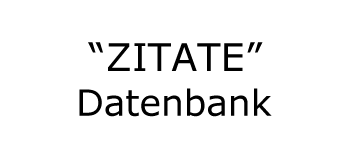Carlyle, Thomas
Thomas Carlyle war ein schottischer Essayist und Historiker, der im viktorianischen Großbritannien sehr einflussreich war.
Zitate
„Keine zauberwirkende Rune ist wunderbarer als ein Buch. Bücher sind das auserlesene Besitztum der Menschen.“
„Das, was wir den Tod nennen, ist in Wahrheit der Anfang des Lebens.“
„Wer liebt mich und wird mich immer lieben, egal wie sehr ich mich verändere oder mir etwas zuschulden kommen lasse? – Du, meine Mutter!“
„Die Musik wird treffend als Sprache der Engel beschrieben.“
„Glücklich, wer seinen Beruf erkannt hat. Er verlange nach keinem andern Glück!“
„Ein Register ohne Buch hat mir manchmal genützt, ein Buch ohne Register nie.“
„If a soul is born with divine intelligence, and has its lips touched with hallowed fire, in consecration for high enterprises under the sun, this young soul will find the question asked of him by England every hour and moment: „Canst thou turn thy human intelligence into the beaver sort, and make honest contrivance, and accumulation of capital by it? If so, do it; and avoid the vulpine kind, which I don’t recommend. Honest triumphs in engineering and machinery await thee; scrip awaits thee, commercial successes, kingship in the counting-room, on the stock-exchange;—thou shalt be the envy of surrounding flunkies, and collect into a heap more gold than a dray-horse can draw. „—“Gold, so much gold?““
„And, truly, good consequences follow out of it: who can be blind to them? Half of a most excellent and opulent result is realized to us in this way; baleful only when it sets up (as too often now) for being the whole result.“
„In the lowest broad strata of the population, equally as in the highest and narrowest, are produced men of every kind of genius; man for man, your chance of genius is as good among the millions as among the units;—and class for class, what must it be! From all classes, not from certain hundreds now but from several millions, whatsoever man the gods had gifted with intellect and nobleness, and power to help his country, could be chosen“
„For ignobleness cannot, by the nature of it, choose the noble: no, there needs a seeing man who is himself noble, cognizant by internal experience of the symptoms of nobleness.“

Hinterlasse ein Kommentar
An der Diskussion beteiligen?Hinterlasse uns deinen Kommentar!